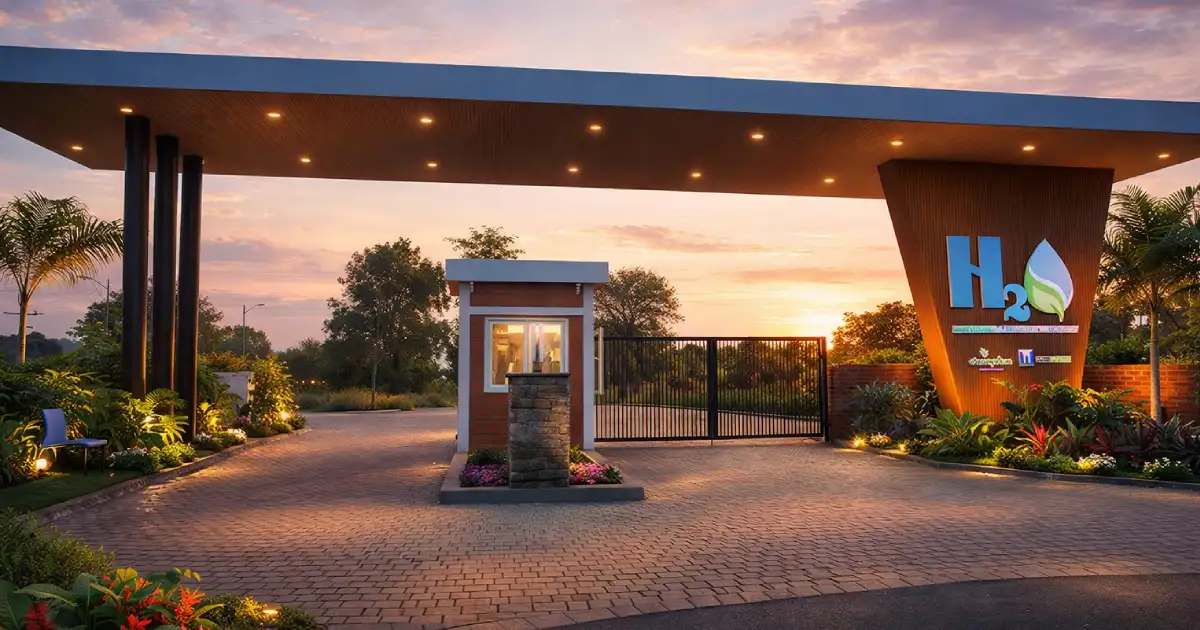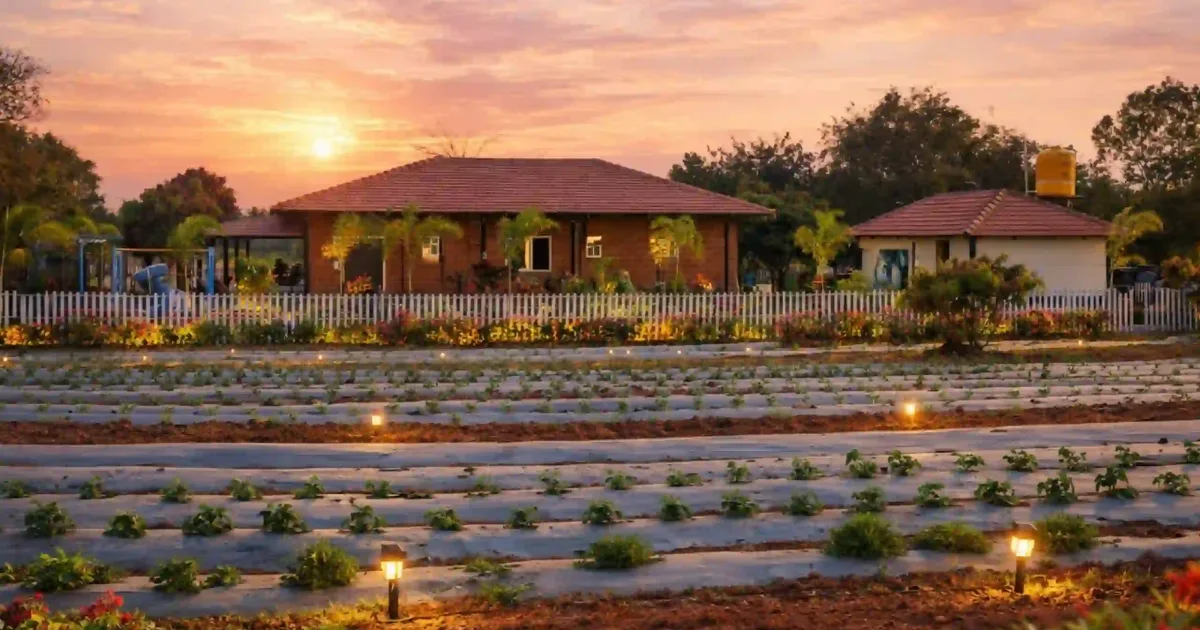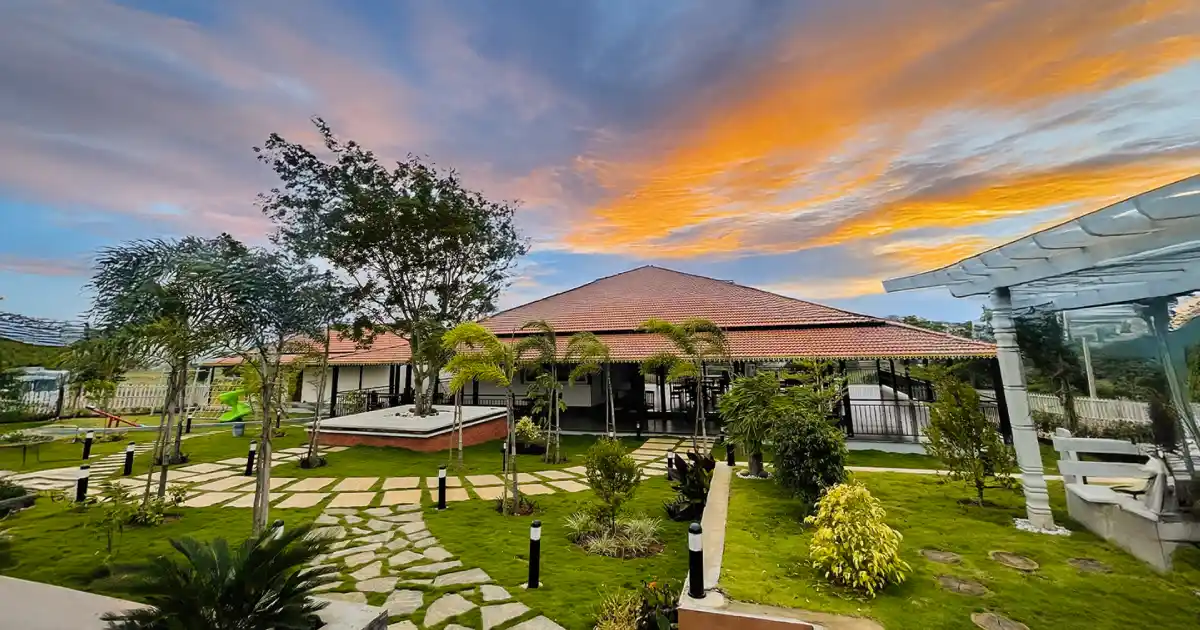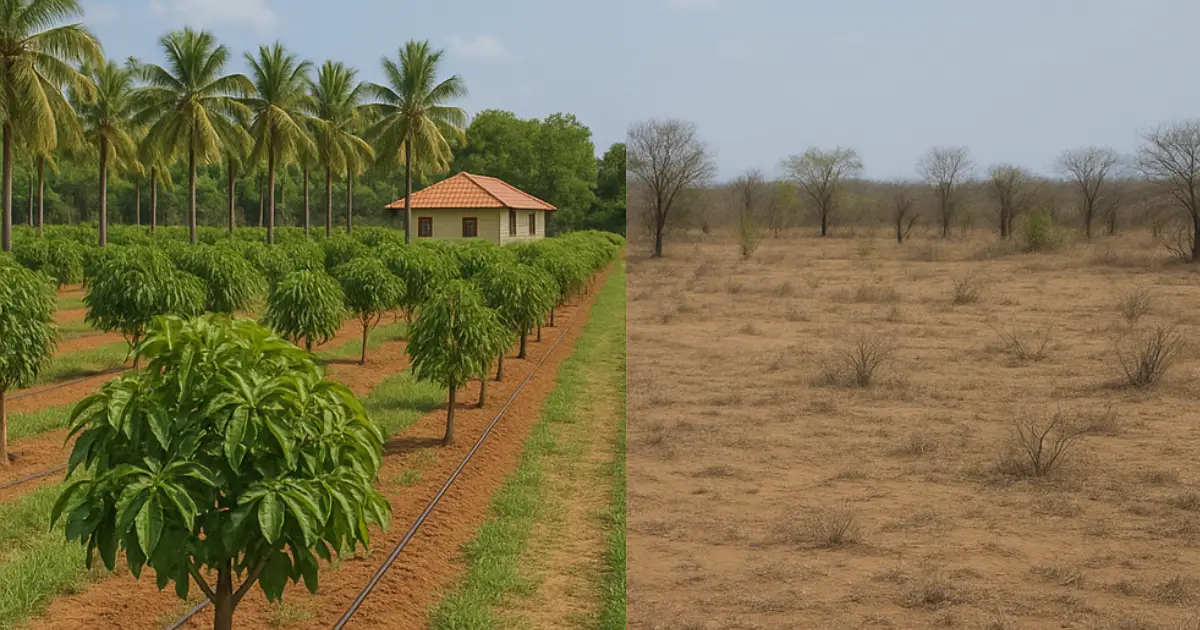A few years ago, Ravi bought ten acres of farmland just outside the city, in a place called Thalli near Anekal. Ravi was working in IT in Bangalore, and he handed it over to a professional farm management company to develop.
Like many professionals, he was not interested in daily agricultural work. But soon, he discovered the real potential with leasing out managed farmland and the steady farmland lease returns it could bring.
Instead of selling or letting it sit idle, he leased it to verified cultivators under legal agreements. Within three years, that lease income covered his loan interest. By year five, he was earning around two to three lakh rupees annually in passive returns, all while keeping ownership and benefiting from land appreciation.
That experience points to a powerful idea. Your farmland does not have to lie fallow. You can generate recurring income from it without giving up ownership.
This article explains how to lease out your managed farmland for extra income in India, especially if you already own or plan to own farmland near Bangalore or elsewhere.
What “leasing out managed farmland” means in India
When I say managed farmland, I mean land where basic infrastructure such as irrigation, soil preparation, roads, and fencing is already in place or handled by a management company. So basically, leasing out managed farmland means you, as the owner, let a farmer or an agri-firm use the land for cultivation under a formal agreement. They pay rent or share the produce, while you keep full ownership. The benefit is simple you avoid day-to-day farming hassles and still earn steady, predictable farmland lease returns.
Legally, financially, and practically: How this works
1. The legal process: how to lease your managed farmland legally in India
a) Check state laws first
Agriculture is a subject under the State List in India, so lease rules differ by state. Some states have restrictions or even bans on leasing agricultural land. The Model Agricultural Land Leasing Act (2016), drafted by NITI Aayog, is meant to be a model for state adoption. It legalizes leasing of agricultural land under mutually agreed terms and protects ownership rights. Several states have already started adopting parts of this model.
Before leasing, you must check your state’s tenancy and land lease statutes, local revenue or village bylaws, and ensure your deed permits leasing.
b) Draft a formal lease agreement and register it
A verbal agreement invites dispute. You need a written lease that includes:
-
Parties, land description, survey numbers
-
Lease term (years or seasons)
-
Rent amount, sharing formula, or payment schedule
-
Responsibilities for irrigation, maintenance, and inputs
-
Permitted crops and cropping plan
-
Penalties and termination clauses
-
Dispute resolution process
In many states, the lease must be registered with the local revenue or sub-registrar office to be legally enforceable.
c) Ensure title clarity and no pending encumbrances
Your title must be clean. Check for liens, mortgages, or disputes. Without clear ownership, a lessee or authority could later challenge your rights.
d) Use audits and oversight
Include annual soil reports, crop yield records, and periodic inspections in your lease. This ensures transparency and accountability between both parties.
2. Typical lease structures, returns, and what to expect
Here we look at farmland lease returns in India and how different models affect your income.
- Fixed cash lease: You receive a fixed annual or seasonal payment per acre. Simple and low-risk, but the lessee bears production risk.
- Crop-share lease: You get a percentage of the yield or revenue (often 20–50%). You share both risk and reward.
- Hybrid lease: Combines fixed rent with a bonus based on yield or profit.
- Service-based lease: You provide infrastructure like irrigation, while the lessee handles cultivation.
- Agri-partnership or eco-farming model: The lessee manages cultivation and may also use the land for agritourism or eco-projects. You share profits from multiple sources.
Expected returns
Returns vary by crop type, location, and agreement. Industry data suggests:
-
Most managed farmland projects in India offer 5–10% annual returns on investment after expenses.
-
Lease yields usually fall between 4–7% of land value in strong agricultural zones.
-
In irrigated areas near Bangalore, lease rates range from ₹30,000 to ₹80,000 per acre per year.
-
Rain-fed zones typically earn ₹5,000 to ₹20,000 per acre per year.
If your farmland is near Bangalore, with strong connectivity and water access, you’re likely to secure higher rent compared to remote plots. Capital appreciation is an added advantage many landowners accept moderate lease yields knowing land values can rise 8–12% annually in fast-growing corridors like Thalli, Denkanikottai, and Devanahalli.
3. Role of professional management companies
You can lease farmland independently, but handling operations, contracts, and audits alone is risky. Professional management companies simplify this by handling:
-
Lessee screening and background checks
-
Drafting and registration of legal contracts
-
Periodic inspections and yield monitoring
-
Mediation in case of disputes
-
Rent collection and financial reporting
For example, helps landowners legally lease their managed farmland through verified cultivation partnerships, providing consistent farmland lease returns while safeguarding ownership rights.
This “middle layer” of management builds trust and reduces the risk of default especially when your farmland is far from where you live.
4. Real models of farmland lease in India
- Agri-leasing to commercial farmers
You lease to professional growers producing high-value crops like mangoes, bananas, or vegetables. - Eco-farming or regenerative agriculture lease
You partner with organizations promoting organic or sustainable agriculture. In addition to rent, you may earn from carbon credits or premium pricing. - Agritourism or farm-stay collaboration
Combines cultivation with hospitality visitors pay for farm experiences while your land generates multiple income streams. - Corporate or institutional leasing
Large agricultural firms lease land for long-term contract farming. They bring technology, steady demand, and reliable payment.
Each of these models allows your land to work for you, even when you’re not directly involved.
5. Legal and financial best practices
-
Always register leases; verbal ones have no legal strength.
-
Avoid open-ended or informal terms.
-
Include escalation clauses (like 5% annual rent increase).
-
Request a security deposit or bank guarantee.
-
Ensure the lessee insures crops and property.
-
Monitor permitted land use to prevent misuse.
-
Define termination conditions clearly.
-
Keep proper tax and income documentation.
-
Maintain a contingency fund in case of lessee default.
These steps ensure your leasing out managed farmland process stays secure and profitable.
6. Example pathway for a Bangalore-area landowner
Imagine you own five acres near Bangalore. The infrastructure fencing, irrigation, and soil prep is ready. You approach a management company to find lessees. After soil testing and a water audit, the company recommends a lease model with a base rent of ₹60,000 per acre plus a 10% profit share.
You sign and register a five-year lease. The cultivator grows horticultural crops and pays rent quarterly. In year three, despite a poor season, your base rent is guaranteed. By year five, you renew at a higher rate while land value has appreciated.
That’s how structured farmland lease returns can generate stable income and long-term value.
Final Reflection
Leasing out managed farmland for extra income in India is a smart and structured way to earn. It only requires the right legal process, a clear agreement, and reliable management. Once in place, your land can generate consistent income while its value continues to grow.
You don’t have to choose between keeping your land and making money you can do both. And if you don’t own farmland yet, we can help you get started. Contact us to explore managed farmlands near Bangalore and start leasing out managed farmland the smart way today.
Follow SVR Farms for real stories, project updates, and insights into building your legacy through smart farmland investment. [Click Here]











